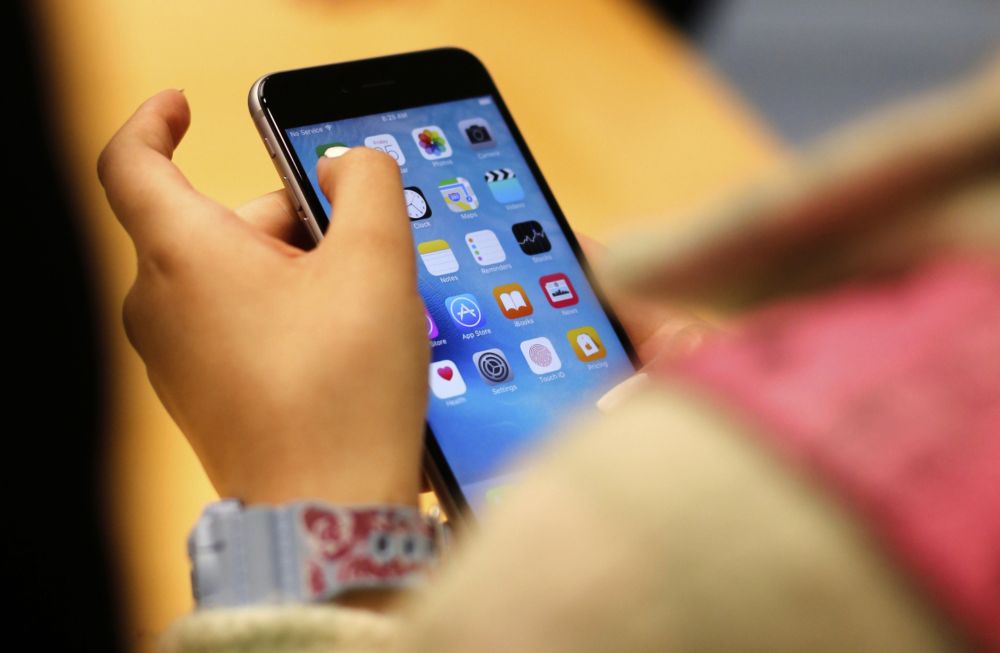
The great rewiring: is social media really behind an epidemic of teenage mental illness?
Nature - The evidence is equivocal on whether screen time is to blame for rising levels of teen depression and anxiety — and rising hysteria could distract us from tackling the real causes.
As we talk about the cheerful insanity of Australia's Social Media Ban again this morning, here's your periodical reminder that the book it's inspired by - The Anxious Generation - is hogwash.
Not just me saying it, but this little journal you might have heard of: Nature.
www.nature.com/artic...
29.07.2025 22:57 — 👍 105 🔁 73 💬 6 📌 5
Fixed that for you, @nature.com
23.07.2025 14:53 — 👍 59 🔁 16 💬 1 📌 1
I think we are walking into the same traps with AI as we did with social media: information technologies are making new areas and scales available, but they are not neutral but built by people and companies for certain goals and won’t just magically align with democratic values or well-being, … 1/2
23.07.2025 07:40 — 👍 24 🔁 11 💬 1 📌 0
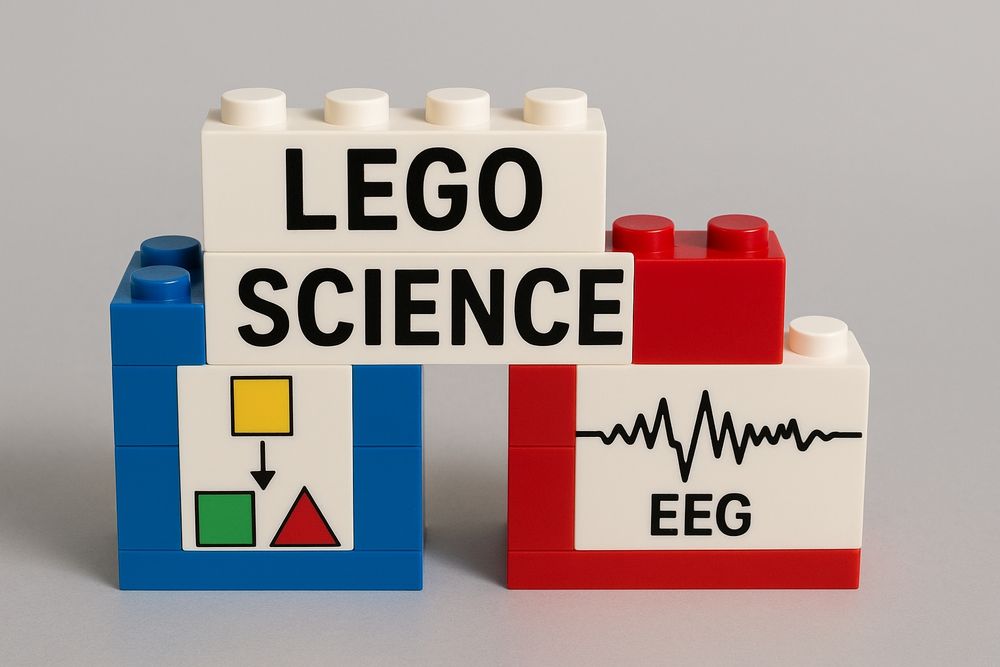
Lego Science is research driven by modular convenience.
When researchers combine methods or concepts, more out of convenience than any deep curiosity in the resulting research question, to create publishable units.
"What role does {my favourite construct} play in {task}?"
22.07.2025 17:12 — 👍 17 🔁 6 💬 0 📌 1
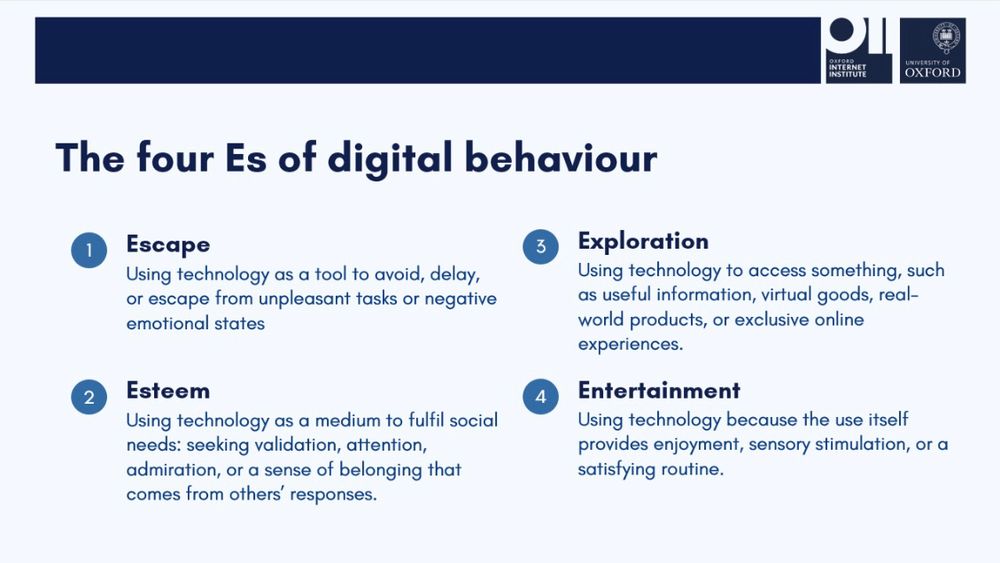
If you’re interested in a new way to describe and analyse digital behaviour, come to my talk to hear about a function-based, behavioural framework at 2pm today! #cyber25
10.07.2025 07:49 — 👍 11 🔁 2 💬 0 📌 0
OSF
New preprint commentary from me, @malte.the100.ci, and @ianhussey.mmmdata.io.
Cognitive dissonance in large language models is neither cognitive nor dissonant.
THREAD BELOW 🧵
osf.io/preprints/ps...
07.07.2025 13:38 — 👍 73 🔁 36 💬 4 📌 6
tl;dr - social media isn’t about “dopamine hits” but is about behaviourism
07.07.2025 01:02 — 👍 10 🔁 3 💬 0 📌 1
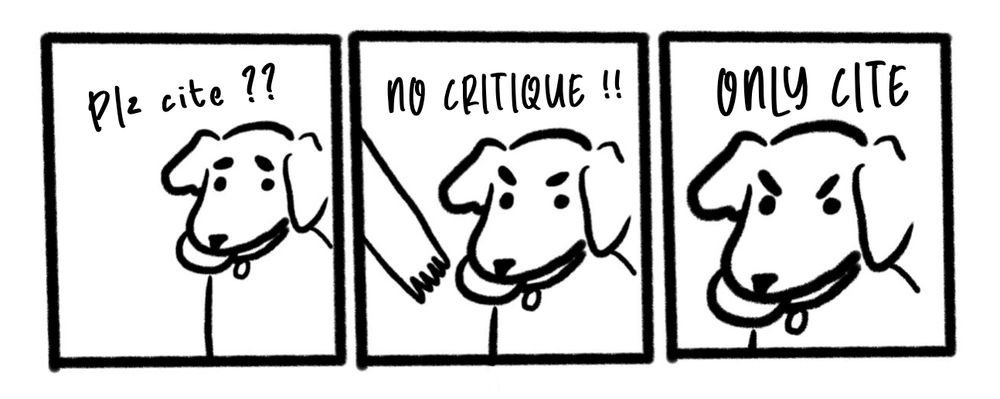
I am often told that public critique of published articles must also solve the issues found. I think this frequently enforced requirement hinders scientific self-correction.
Blog post:
mmmdata.io/posts/2025/0...
05.07.2025 12:01 — 👍 105 🔁 22 💬 3 📌 7
OSF
📣 New preprint out!
In "It’s her! Investigating relationship development with social AI chatbots", we explore how people form emotional bonds with chatbots.
📄 Read the full preprint: doi.org/10.31235/osf...
✍️ with @tobiasdienlin.com
30.06.2025 20:29 — 👍 6 🔁 3 💬 1 📌 1
Congratulations Beth!
01.07.2025 09:26 — 👍 1 🔁 0 💬 0 📌 0
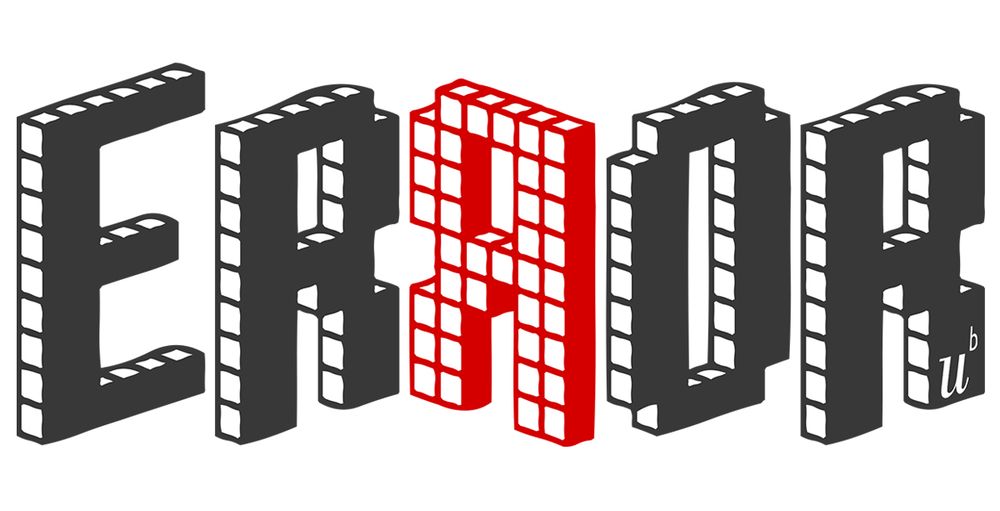
Home
ERROR is a bug bounty program for science to systematically detect and report errors in academic publications
Anyone around #metascience2025 who wants to talk post-publication peer review (error.reviews), preregistration-paper comparison (regcheck.app), or research quality management, please drop me a line!
29.06.2025 11:18 — 👍 48 🔁 13 💬 3 📌 1
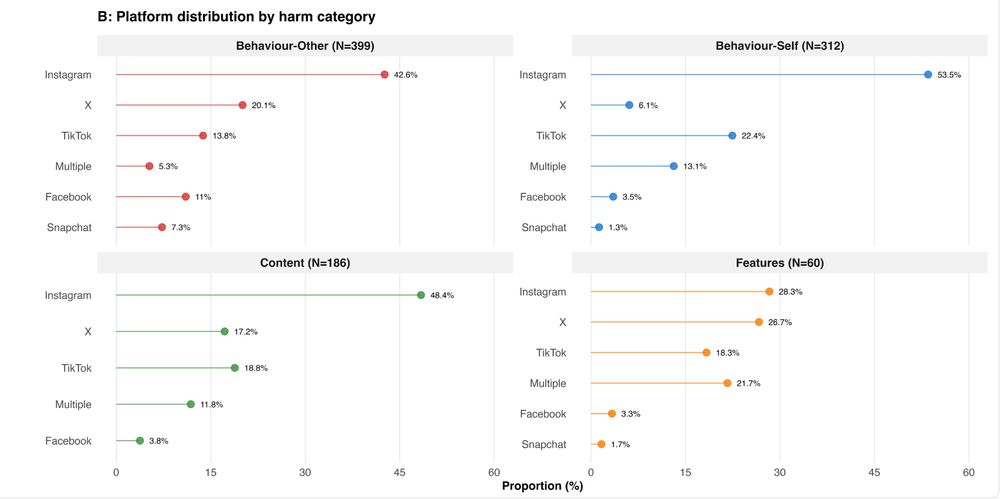
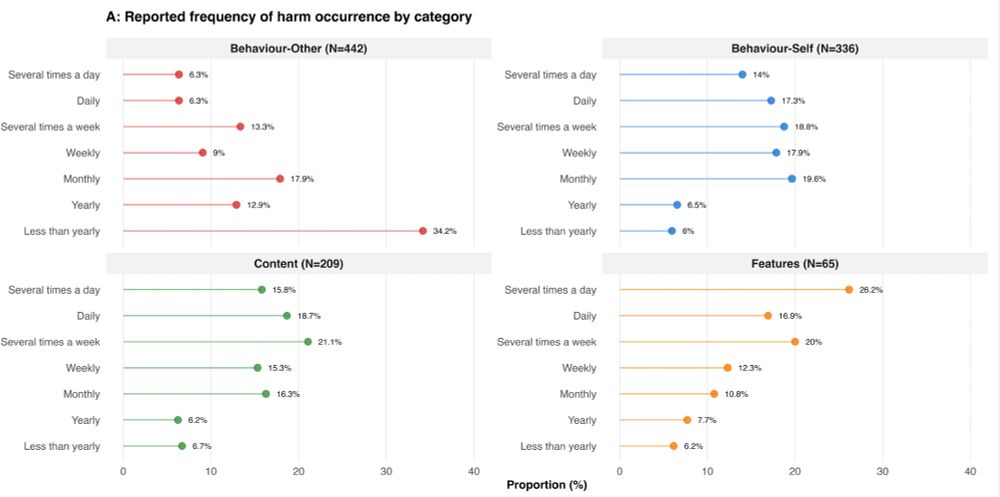
🚨New preprint 🚨
𝐘𝐨𝐮𝐭𝐡 𝐏𝐞𝐫𝐬𝐩𝐞𝐜𝐭𝐢𝐯𝐞𝐬 𝐨𝐧 𝐒𝐨𝐜𝐢𝐚𝐥 𝐌𝐞𝐝𝐢𝐚 𝐇𝐚𝐫𝐦𝐬: 𝐀 𝐋𝐚𝐫𝐠𝐞-𝐒𝐜𝐚𝐥𝐞 𝐌𝐢𝐜𝐫𝐨-𝐍𝐚𝐫𝐫𝐚𝐭𝐢𝐯𝐞 𝐒𝐭𝐮𝐝𝐲
osf.io/preprints/ps...
🧵
Using a novel micro-narrative method, we collected ~ 900 first-person accounts of social media harms from young people across the UK and US.
24.06.2025 10:58 — 👍 18 🔁 6 💬 1 📌 1
Another great post showing the flexibility and usefulness of the new Papercheck tool.
Interestingly, RegCheck handles the issue Daniel flags below correctly (i.e., it does not make claims about the non-preregistered cohort B; only cohort A):
23.06.2025 10:55 — 👍 13 🔁 6 💬 1 📌 1
They also measured screen time via self-report.
20.06.2025 13:44 — 👍 2 🔁 0 💬 1 📌 0
Here’s a screenshot of the “addictive use” trajectories from the JAMA paper cited below. My educated guess from the details of the measure is that none of these lines comes close to bona fide “addictive” use
🧵
20.06.2025 12:38 — 👍 33 🔁 18 💬 2 📌 4
We need to push for more meaningful measures, clearer communication, and serious care with claims.
Science isn’t about what’s easiest to study or what makes a good headline. It’s about getting it right.
20.06.2025 08:32 — 👍 8 🔁 1 💬 1 📌 1
We’re talking about suicidal behaviours in young people. We can’t default to what is convenient for us and we can’t make causal claims with correlational data.
Policy and public opinion are watching.
20.06.2025 08:32 — 👍 7 🔁 1 💬 1 📌 0
Next, a researcher not involved in this study claims “the data points to the limitations of screen time as a predictive measure. But he said screen time remains useful, because it’s easier to measure”
20.06.2025 08:32 — 👍 2 🔁 0 💬 1 📌 0
First, the lead author states: “This is the first study to identify that addictive use is important, and is actually the root cause, instead of time”
But the article then later states: “Because of its design, the study did not establish that addictive use caused suicidal behaviors”
20.06.2025 08:32 — 👍 5 🔁 0 💬 2 📌 1
As someone who spends much of her day thinking about how we can and should measure online behaviours, this article really struck a nerve with me and I’d like to comment on a few important issues it raises
(1/x)
20.06.2025 08:32 — 👍 29 🔁 8 💬 1 📌 0
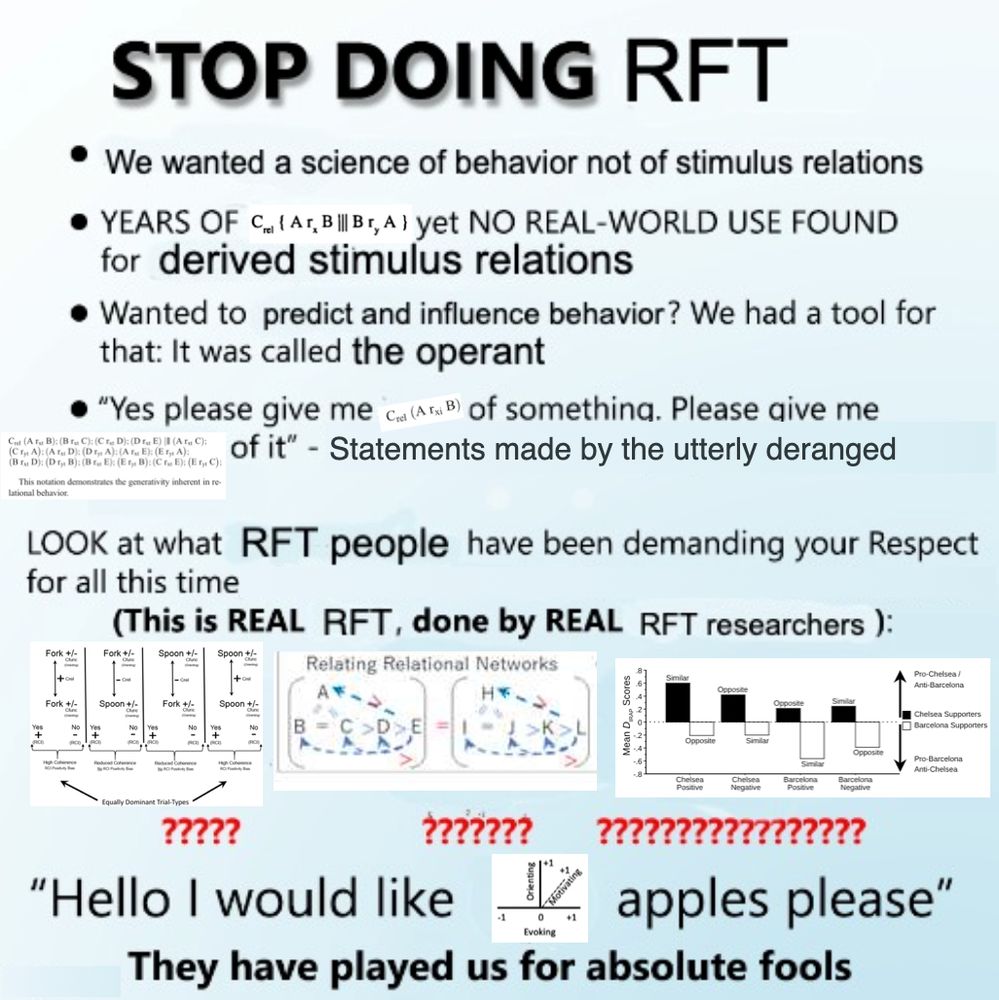
Extremely niche shitpost
12.06.2025 08:24 — 👍 24 🔁 7 💬 4 📌 2
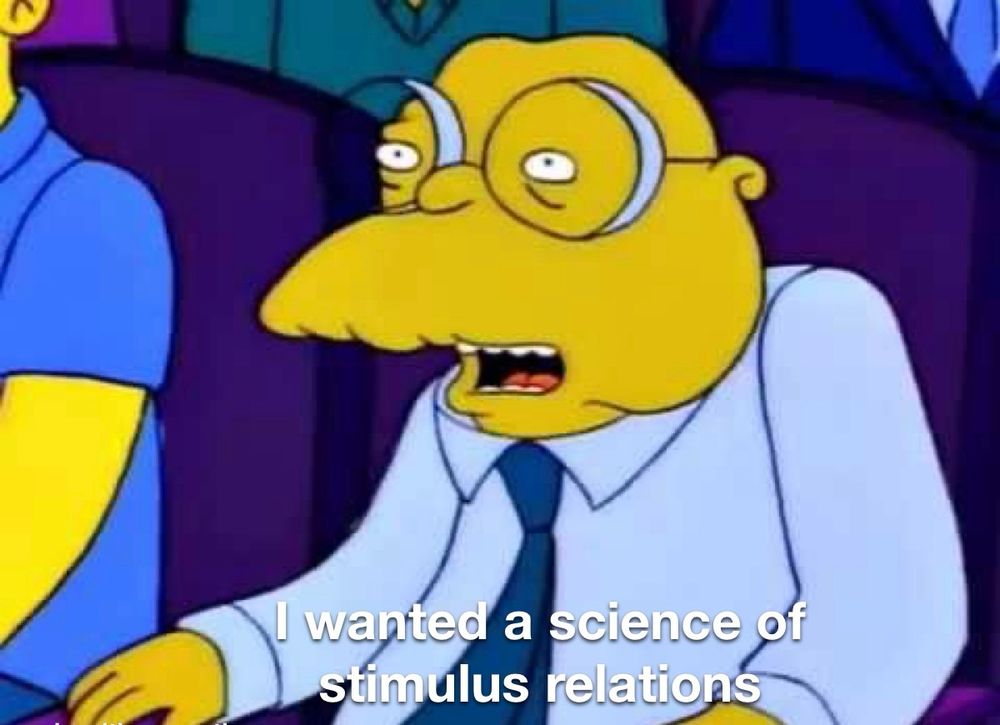
Meme of moleman saying “I wanted a science of stimulus relations” from the classic “I was saying boo urns” scene
Some RFT researcher, probably
12.06.2025 08:48 — 👍 7 🔁 0 💬 1 📌 0

Digital media and its impact on children and adolescents – livestreamed Nordic and EU expert meeting
YouTube video by Folkhälsomyndigheten
Daniel Kardefelt-Winther presenting new analyses that covers nearly 39,000 children from 39 countries
www.youtube.com/live/XKo6oUY...
Spoiler alert: Screen time alone was weakly and inconsistently associated with mental health indicators
05.06.2025 17:07 — 👍 7 🔁 4 💬 0 📌 0
🎙️Screen Sense - new podcast with me and @shuhbillskee.bsky.social, is launching next week! Two psychologists (and dads) talking honestly about what it means to raise a family in a screen-filled world - with science, real stories and zero guilt. Launching 13th June. screensensepodcast.substack.com
05.06.2025 18:22 — 👍 33 🔁 14 💬 2 📌 0
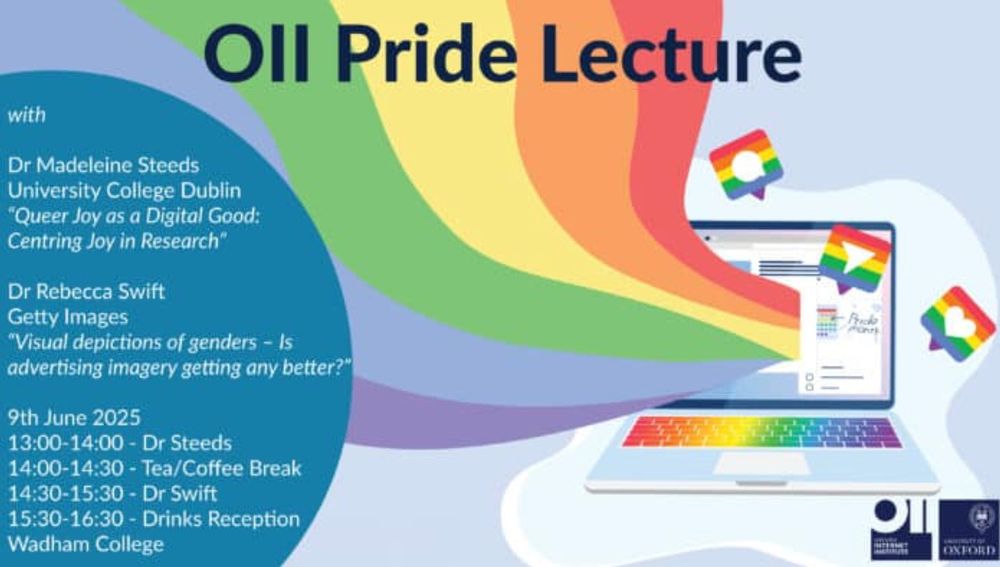
🗣️ Dr Madeleine Steeds, assist prof in @ucdischool.bsky.social, is giving a keynote speech at the Oxford Internet Institute @oii.ox.ac.uk, titled: "Queer Joy as a Digital Good: Centring Joy in Research"
🗓️9th of June, 1:00pm-2:00pm
📍Event is hybrid
🔜Register: www.oii.ox.ac.uk/news-events/...
05.06.2025 10:38 — 👍 1 🔁 2 💬 0 📌 1
New Paper! 📱Are Social media mental health policies and wellbeing tools meaningful interventions or superficial solutions? 🤔
#socialmedia #techforgood #trustandsafety
04.06.2025 13:41 — 👍 5 🔁 3 💬 0 📌 0
I was interviewed for this article on Mr. Porter about escapism and video games: www.mrporter.com/en-us/journa...
04.06.2025 12:48 — 👍 2 🔁 1 💬 0 📌 0
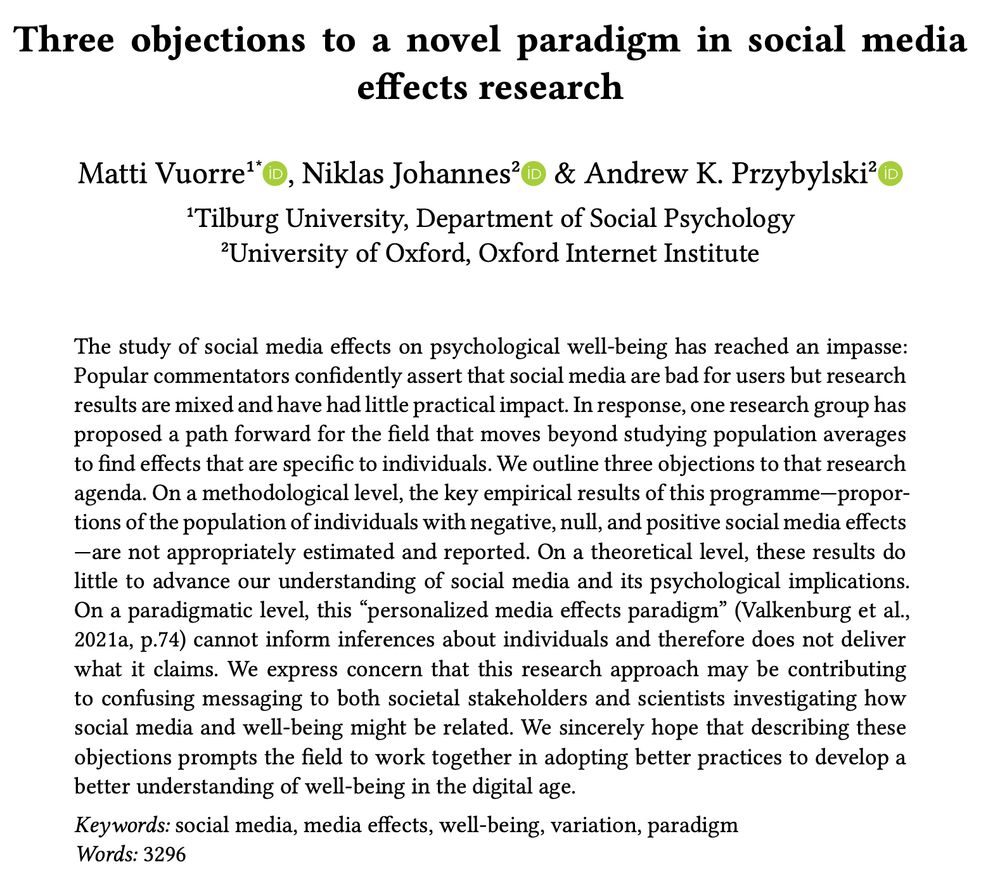
Title:
"Three objections to a novel paradigm in social media effects research"
Abstract:
The study of social media effects on psychological well-being has reached an impasse: Popular commentators confidently assert that social media are bad for users but research results are mixed and have had little practical impact. In response, one research group has proposed a path forward for the field that moves beyond studying population averages
to find effects that are specific to individuals. We outline three objections to that research agenda. On a methodological level, the key empirical results of this programme—proportions of the population of individuals with negative, null, and positive social media effects—are not appropriately estimated and reported. On a theoretical level, these results do little to advance our understanding of social media and its psychological implications. On a paradigmatic level, this “personalized media effects paradigm” (Valkenburg et al., 2021a, p.74) cannot inform inferences about individuals and therefore does not deliver what it claims. We express concern that this research approach may be contributing to confusing messaging to both societal stakeholders and scientists investigating how social media and well-being might be related. We sincerely hope that describing these objections prompts the field to work together in adopting better practices to develop a better understanding of well-being in the digital age.
@shuhbillskee.bsky.social, Niklas Johannes & I finally submitted our critique of a "new paradigm" in social media effects research for peer-review at Meta-Psychology. If you're interested in reviewing, please submit a review to open.peer.reviewer@gmail.com or e.g. prereview.org, or reply here.
28.05.2025 11:02 — 👍 36 🔁 9 💬 4 📌 1
I saw a paper on my feed a couple of weeks back along the lines of "Lessons from the software industry for reproducible science" but failed to save it... Can anyone help me find it?
22.05.2025 08:42 — 👍 3 🔁 3 💬 1 📌 0
DPhil (PhD) student in Experimental Psychology at the University of Oxford 🎓
Researching digital interventions for child anxiety problems 💻
PhD student in Cyberpsychology, focusing on violent video game player experiences.
phd student and research & teaching assistant at IKMZ | University of Zurich 🇨🇭| comm. science | human-AI relationship development | open science
nadjarupprechter.wordpress.com
if (!working) {
playing_counterstrike()
at_gym()
creating_memes()
}
Professor and Chair of the Social-Personality Psychology Program at Queen’s University, Canada.
Economist interested in meta-science and open science.
https://janfeld.weebly.com/
Professor of Psychology, University of Minnesota. Sporadically writing stuff at http://getsyeducated.substack.com
Assistant Prof at Fukushima Medical University | CBT, depression, rumination, patient‐reported outcomes | https://sites.google.com/view/hideki-sato-repository
Professor of Online Communication. Researching the transformation of communication and society. Critical optimist.
Senior Researcher @gesis.org // Data Editor @polcommjournal.bsky.social
🔎 political communication (#polsky + #commsky) with text analysis and #rstats (#opendata + #openscience)
🌏 JohannesBGruber.eu
👨💻 research software github.com/JBGruber
Data scientist and communication researcher (mobile media use) at the Weizenbaum Institute, Berlin
Talking tech, science and media. Journalist and broadcaster. Host of @fortechssakepod.bsky.social and Connected AI Podcast.
Researching how online use impacts mental health at University of Bristol.
Assistant Lecturer in Psychology. Cyberpsychology 🎮 Virtual Reality 🥽 Eyewitness Memory 🧑⚖️
PhD Digital Technology and Mental Health | University of Oxford | Oxford Internet Institute
Peer-reviewed journal for international, interdisciplinary academic research on the dynamic field of mobile media and communication.
Official account for Ofcom, the UK’s independent communications regulator.
ofcom.org.uk
#Cybersecurity and #digitalliteracy educators and specialists • 🔎 Online investigators • ❌Not monitored 24/7 • www.thewhitehatter.ca
PhD Candidate @ UEA | Gamified Inoculation against Misinformation | Cyber | All views my own.
📍Fine City of Norwich 🔰
https://research-portal.uea.ac.uk/en/persons/niklas-henderson
linktr.ee/nhdisinfo
PhD candidate at Bournemouth University in the psychology department.
Video games, nostalgia, and well-being.
He/Him
I work with communities on citizen science for safer, fairer, more understanding Internet. Founder: Citizens & Technology Lab. Assistant Prof in Communication at Cornell · Guatemalan-American. @natematias@social.coop
natematias.com
citizensandtech.org

